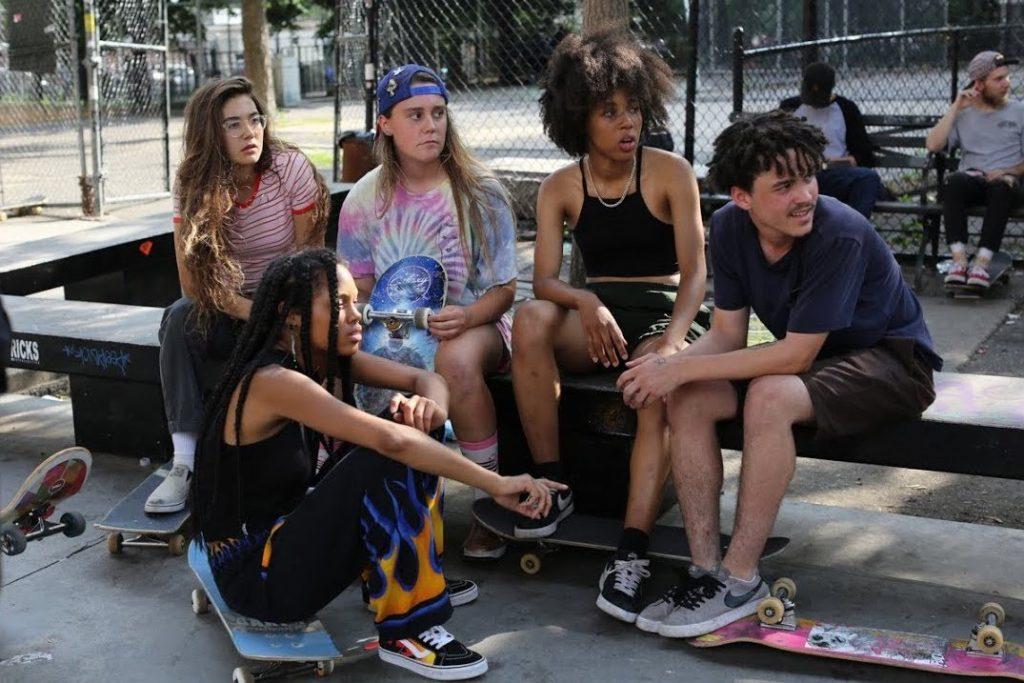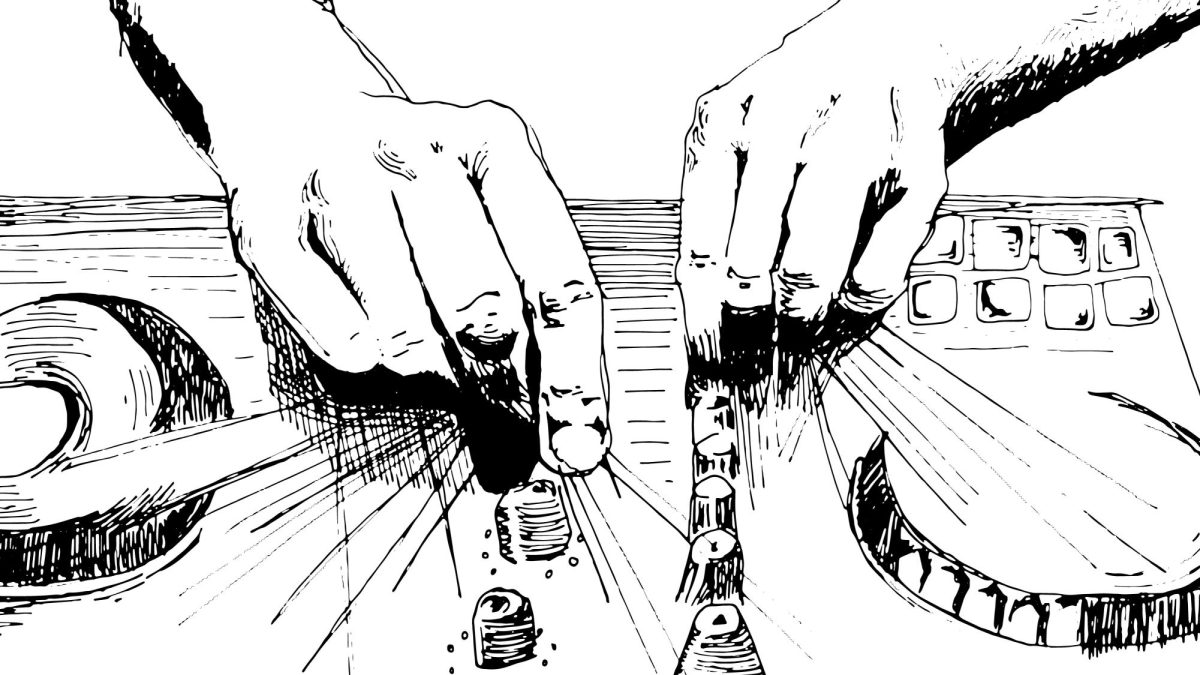
Crystal Moselle’s latest coming-of-age film features a group of young female skateboarders in New York City.
Crystal Moselle’s Skate Kitchen veers sharply off the path of romantic comedies. It ditches type-casting in favor of a documentary and coming-of-age hybrid for an in-depth look at women in skater subculture. The movie itself borrows its name from an Instagram-famous female skating collective, members of whom play fictionalized versions of themselves.
Unique in many other aspects, Skate Kitchen’s strongest suit is its handling of gender. Camille, a main character in the film, has a skateboarding accident at the beginning of the film which leads her mother to ban skateboarding on the grounds that an injury might prevent Camille from having kids someday. The film presents gender-based double standards such as the fact that female bodies are typically perceived as more frail, and yet they are expected to carry children.
It slowly becomes known that Camille and her mother have a strained relationship. During their fights, she retreats from their arguments by watching Instagram videos of Skate Kitchen. She creates more distance between her mother and herself by responding only in English even though her mother speaks to her in Spanish. At this point it’d be easy to write off Camille as a disrespectful, bratty teenager. She runs away, driving this point home. But as she gets closer to Janay, one of the girls from Skate Kitchen who offers her a temporary place to say, Camille reveals a history of custody battles. Camille’s “difficult to live with mother” is also far from perfect, disappearing for stretches at a time to go out dancing with her boyfriend and criticizing her daughter’s hypo-feminine wardrobe.
Skate Kitchen also critically examines male-female relationships. In another conversation with Janay, Camille admits that she only moved back in with her mother because her father was completely unprepared for anything in the “girl-world.” Once she started “growing, changing” it was no longer possible to pass for one of the guys in her genderless haze of wearing jerseys and playing sports. Camille found herself “needing a mom” again – someone to field her questions about bras, periods and all things puberty. Though intentional on the part of her father, raising Camille as “one of the boys” seemingly prevents Camille from exploring her gender identity, and Camille comes across to viewers as gender fluid.
Additionally, throughout Skate Kitchen men are portrayed as hostile, with several girl versus guy skater posse face-offs, for example. At other times, the males including Devon, Camille’s love interest, are predatory: Devon has a habit of taking pictures of beautiful skater girls, a male skater drugs one of the Skate Kitchen members in a park in broad daylight and Devon’s friends callously watch porn around Camille when she has no other place to stay.
Skate Kitchen isn’t without its shortcomings. I would’ve preferred less scenes of people simply getting high and more accurate wardrobe choices for the skateboarding. So while I applaud the film for its diverse array of characters (African Americans, Latinas and Caucasians) and its attempt to give them distinct personalities, it feels like someone spun the millennial wheel of fortune to spew out different versions of the same character. There were also some inconsistencies. For instance, why portray Camille studying at the library if we never see her go to school nor hear her mention it?
What redeems Skate Kitchen for me are its unspoken rallies in favor of communication. Despite her issues with her mother, the two eventually reconcile. Camille stops retreating into social media and starts responding to her mother in Spanish. The falling out with the skater girls also centers on communication. It’s also worth pointing out that the male presence in the film serves to critique a historically male-dominated culture. I’d encourage anyone who likes to play detective, search for deeper meanings and fight for more representative roles of women in cinema to look for the answers to these questions in a screening of Skate Kitchen. Moselle cleverly disguises an anthem for the modern woman behind stills and screen candy of disaffected youth.








